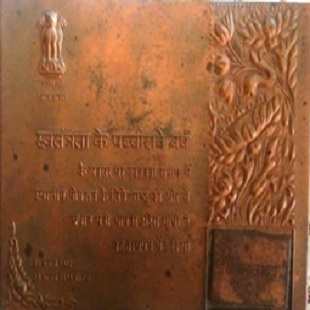Bhimacharan Patra was born on 13 June 1894, in Kunjapara village under Bhagwanpur (now Bhupatinagar) police station in East Medinipur district, India. After receiving education in various schools, he completed his matriculation in 1918 and further pursued his studies at Medinipur College.
Imbued with Gandhiji's principles of non-violence, Patra became actively involved in the non-cooperation movement during his time at Baharampur College. He emerged as a leader in the Bhagwanpur police station, establishing national schools and spearheading various revolutionary activities. His leadership during the salt satyagraha and civil disobedience movements led to significant successes, albeit at the cost of personal sacrifices including imprisonment and confiscation of his dwelling.
Throughout the Quit India Movement of 1942, Patra's leadership was pivotal, orchestrating revolutionary programs across the Contai subdivision. Under his guidance, police stations like Khejuri and Potashpur were captured peacefully. Despite facing repeated arrests and imprisonments, Patra remained resolute in his pursuit of freedom and social upliftment.
Post-independence, he embraced the constructive ideals of Vinoba Bhave, actively engaging in initiatives like Sarbodaya, Khadi, and Gramodyoga. His efforts towards women's education and cooperative movements were exemplary.
In 1972, Prime Minister Indira Gandhi honored his contributions with a Tamra Patra.
Bhimcharan Patra passed away on 16 September 1977.

Tamra Patra was awarded to Bhimacharan Patra by the Government of India in 1972.
Source: Soumen Pal, Contributor for CCRT.